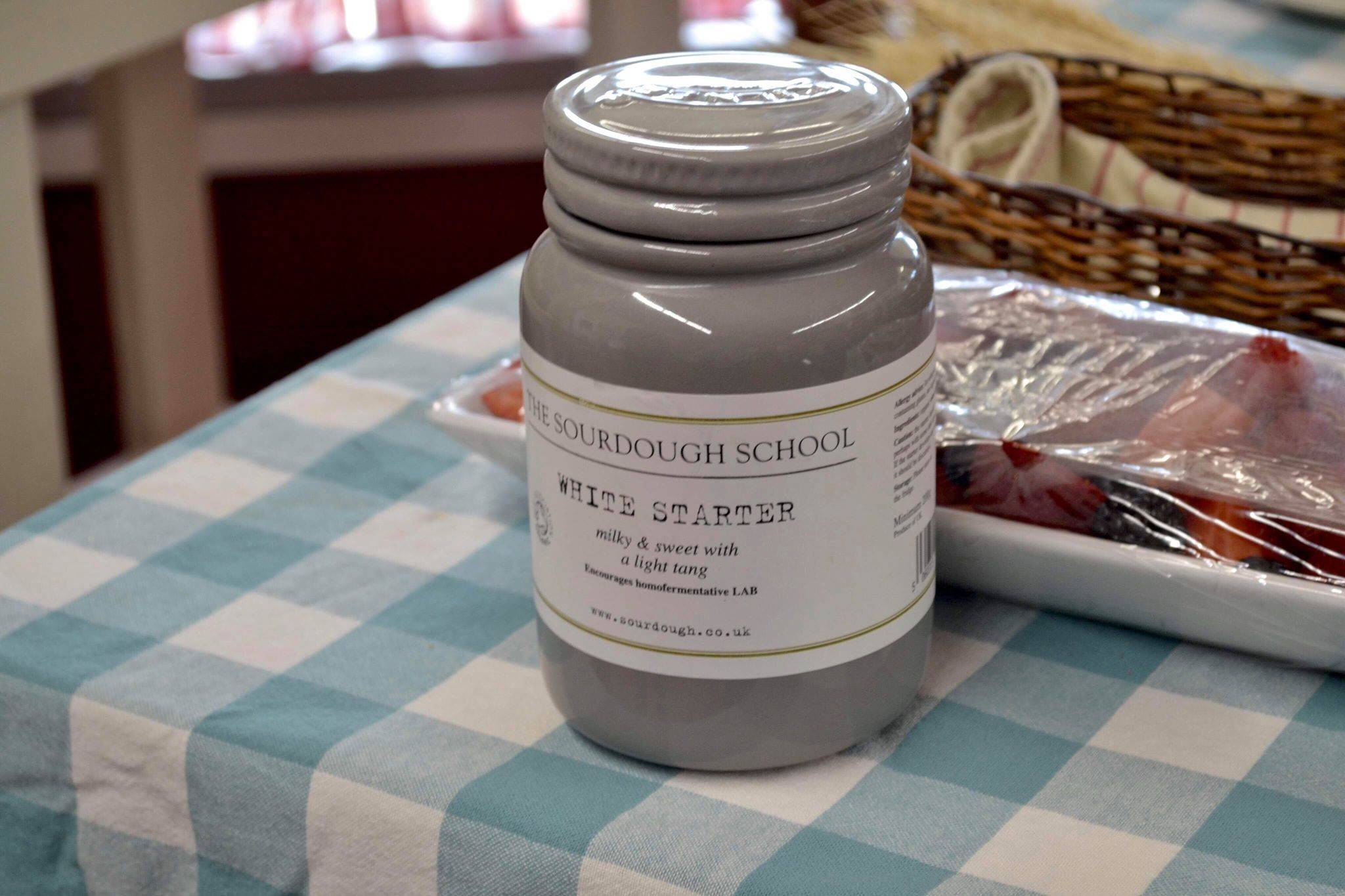Sourdough starters — which are used to make bread, pancakes and more — is a quintessential Alaska food. A sourdough refers to both old, hearty Alaskans, and to the starters nearly every early settler brought with them on their trek north. Sourdough starters — a fermented mixture of flour, water and a little sugar — were relied on to leaven bread before commercial baking powder and yeast were available in the Last Frontier.
The use of sourdough dates much further back than Alaska’s early Klondike gold-seekers and adventurers. It’s the oldest form of leavened bread in existence and is believed to have been used as far back as ancient Egypt.
Once a starter is made, a short fermentation process is required before it’s ready. But, once it’s ready, the starter can be maintained. Families have been replenishing their starters with equal parts of water and flour every couple weeks, keeping the starter alive, literally, for years to come. As the starter ages, it can take on new flavors and tang. Some starters have been around for several generations, like the one being used at Addie Camp Train Car Eatery and Wine Bar in Soldotna.
The starter comes from one of the restaurant’s cooks, Kiel Nichols, who received the starter from his mom, who got it from a friend of hers, who knew a homesteader named Dick Proenneke from Twin Lakes in Lake Clark National Park. Proenneke was born in 1916, and lived alone for more than 30 years in his cabin on the shores of Twin Lakes. Proenneke’s homestead has since been preserved as a museum and was added to the National Register of Historic Places. His experience has been adapted into a book and into a movie, both titled “Alone in the Wilderness.”
“(Proenneke) … walked out and built his own cabin, built all his own tools,” Nichols said. “My mom ended up with it from her friend that knew him and now it’s passed down to me, and now (Addie Camp).”
The sourdough starter, which is believed to be at least 50 years old, is used to make a German apple pancake and toast featured on the restaurant’s brunch menu.
Lucy’s Market in Soldotna is getting ready to launch a bread program at the end of May when they move to their new location. Of course, sourdough bread will be incorporated into that program. Owner, Kelsey Shields said her sourdough starter was given to her by “a kind, 80-something-year-old German lady named Marlis.”
“She lived in Anchorage and was renting out her basement to the guy I was dating,” Shields said. “Anytime I was in town visiting, Marlis would stop to chat if she saw me. She brought many things with her when she moved to Alaska: a keen eye for real estate, expertise as a dance teacher, and a sourdough starter that supposedly began its life in Germany over 250 years ago.”
Shields said the market is excited to have sourdough on their menu.
“Long-fermented sourdoughs are easier for our bodies to digest, as the wild yeast and bacteria in the sourdough have already begun to pre-digest the wheat for us, releasing nutrients along the way,” Shields said. “We love the tradition behind sourdough, the flavor, the texture, and even the challenge of getting to know your starter and how to keep it healthy and productive.”
Some sourdough starters are a little younger.
“His name is Kevin, and he was born last year,” Jesse Hughes, one of the owners of Three Peaks Mercantile, a local food-centric pop-up shop, said.
Hughes was inspired to create her own starter, in the traditional way, as a way to get to the root understanding of how bread is made.
“I really wanted to try sourdough and really traditional sourdough,” Hughes said. “Not like the sourdough you buy at the store. I wanted to see what the main difference is and how hard it actually was.”
Hughes said Kevin has a personality all his own.
“It’s definitely finicky,” she said. “He definitely has to be fed. When I don’t use him or when I don’t feed him, he’ll act like he’s super hungry.”
A local sourdough enthusiast, Lacy Ledahl’s sourdough starter traveled all the way from Europe as well. After falling in love with the science of sourdough, she decided to visit the Sourdough School in England, a center for sourdough education and research. While she was there, she learned all about the process of sourdough. The school even let her take home some of the institution’s starter, which Ledahl said was over a century old.
“I had to take it with me on a train from (the village of Northamptonshire) to a hotel in London,” Ledahl said. “The next morning I had to fly to Seattle, and then fly to Anchorage and then to Kenai. Along the way, I was feeding it and keeping it alive.”
Ledahl said she carried the starter in a small, portable vile. When she got home, she married the well-traveled starter with the starter she already had made at home. She calls her new, unique starter Holly.
“Thankfully customs didn’t take it,” Ledahl said. “I got to make bread the next day.”Ledahl decided to come back and share that knowledge, and starter with the community. Last Saturday, Ledahl, and fellow sourdough enthusiasts Maria Nalos and Elizabeth Cox hosted a sourdough class at Maggie’s General Store in Kenai. The class discussed the benefits of sourdough, the basics of making a starter and how to incorporate the ingredient into cooking. Class attendees had samples to try and were able to take some of Ledahl’s starter home with them.

